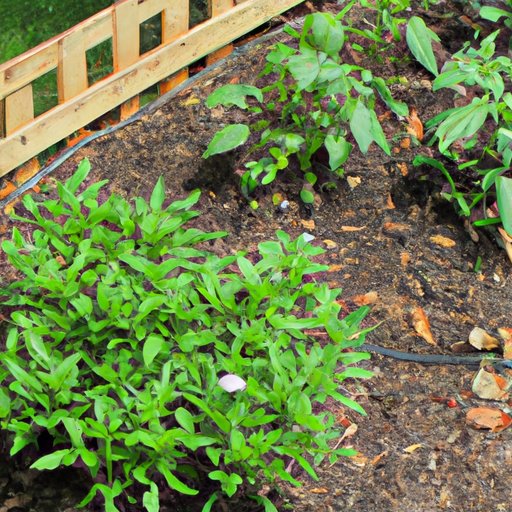Introduction
Rabbits are one of the most common garden pests. They can quickly decimate an entire flower bed or vegetable patch with their voracious appetite for plants. While some gardeners may find them cute and charming, the damage they can do is no laughing matter. Fortunately, there are several ways to prevent rabbits from eating your plants.
Plant Flowers That Rabbits Don’t Like To Eat
One of the simplest and most effective strategies for preventing rabbits from eating your plants is to plant flowers that they don’t like. Marigolds, petunias, and impatiens are all examples of flowers that rabbits tend to avoid. Planting these flowers around the perimeter of your garden will help to keep the rabbits away.
Install a Fence
Another way to protect your plants from rabbits is to install a fence around the perimeter of your garden. This will create a physical barrier that the rabbits can’t get through. There are many different types of fencing available, so it’s important to choose one that is suitable for your particular garden.

Spray Plants With Hot Pepper Solution or Diluted Ammonia
You can also protect your plants from rabbits by spraying them with a hot pepper solution or diluted ammonia. These solutions have a strong smell that rabbits don’t like, and they will help to deter them from eating your plants. Make sure to follow the instructions on the packaging when applying these solutions.

Cover Vulnerable Plants With Chicken Wire or Netting
If you have certain plants that you know rabbits like to eat, you can protect them by covering them with chicken wire or netting. This will create a physical barrier that the rabbits can’t get through, and it will help to keep them away from your plants. Make sure to use a material that is strong enough to withstand the rabbits’ attempts to get through it.
Spread Cayenne Pepper or Garlic Powder on the Ground
Cayenne pepper and garlic powder are both known to be effective at deterring rabbits from eating plants. Simply sprinkle them around the perimeter of your garden, and the rabbits should stay away. Be sure to reapply the powder every few weeks to keep the rabbits away.
Plant Tall, Dense Shrubs and Trees
Tall, dense shrubs and trees can also be used to deter rabbits from eating your plants. These plants will create a physical barrier that the rabbits won’t be able to get past, and they will also provide a natural habitat for birds and other animals that will help to keep the rabbits away. Choose plants that are native to your area for best results.

Put Rabbit Repellent in the Soil
Finally, you can also put rabbit repellent in the soil around your plants. There are many different types of rabbit repellents available, so it’s important to choose one that is suitable for your particular garden. Make sure to follow the instructions on the packaging when applying the repellent.
Conclusion
Rabbits can quickly decimate an entire flower bed or vegetable patch with their voracious appetite for plants. Fortunately, there are several ways to prevent rabbits from eating your plants. These include planting flowers that rabbits don’t like to eat, installing a fence, spraying with hot pepper solution or diluted ammonia, covering vulnerable plants with chicken wire or netting, spreading cayenne pepper or garlic powder on the ground, planting tall, dense shrubs and trees, and putting rabbit repellent in the soil. With a little bit of effort, you can keep your garden safe from pesky rabbits.
(Note: Is this article not meeting your expectations? Do you have knowledge or insights to share? Unlock new opportunities and expand your reach by joining our authors team. Click Registration to join us and share your expertise with our readers.)
